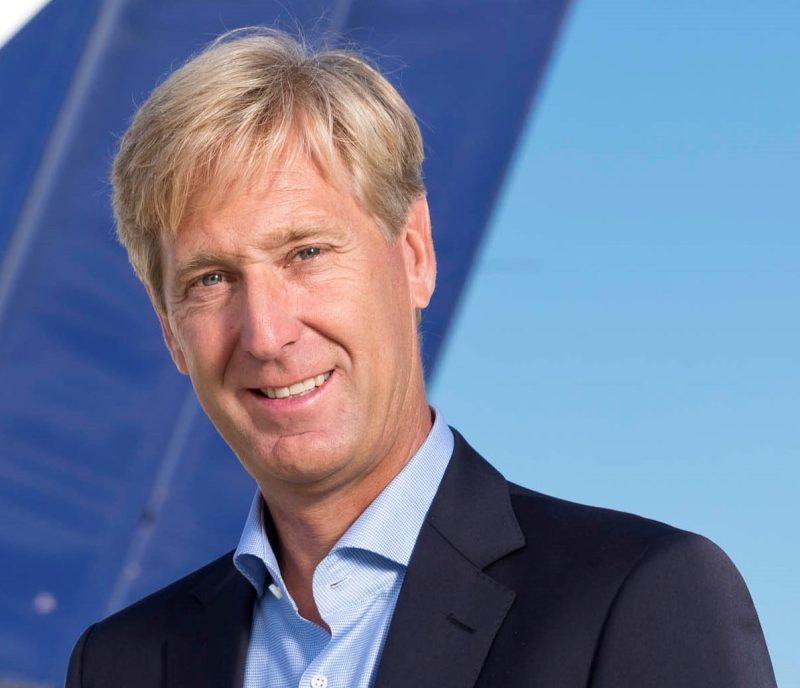The German aviation investment company Intro Aviation has repeatedly caused a stir with spectacular takeovers. Originally founded by Hans Rudolf Wöhrl, the company is now in the hands of his son-in-law Peter Onken and his partner.
Intro Aviation's European portfolio includes Deutsche BA, LTU, InterSky, Cityjet and most recently Corsair. Peter Oncken actually wanted to keep the French carrier longer, but the corona pandemic threw a spanner in the works. There are no longer any airline holdings in Europe, but they are in Asia.
In an interview with Aviation.Direct, the head of Intro-Aviation explains, among other things, why Corsair was sold, why many regional flight connections no longer exist and what advice he would give to young people with ambitions to found an airline.
Aviation.Direct: Could you have imagined a few years ago, for example at InterSky or most recently at Corsair, that global aviation would come to a standstill within a few days?
Peter Oncken: Of course I couldn't imagine that. It was really beyond imagination. There have always been special situations that have significantly disrupted aviation in the past and there will always be, for example the volcanic eruption in Iceland in 2010, which severely affected European aviation, but also terrorist ones Attacks on the World Trade Center in 2001, which also had massive repercussions for global aviation. But what we are experiencing here over the past 2 years has a completely new dimension, the effects of which will be felt for years to come.
INTRO Aviation was of course not spared. In 2019 we took over the majority in the French long-haul airline Corsair and underwent restructuring. We were in the midst of realignment when Covid-19 hit. In view of the massive impact and the associated capital requirements over the next few years, I, like my partner TUI, have decided to place the company in new hands. It wasn't easy for me, because it was my heart's desire to accompany the development of the Corsair over the next few years. But you also have to look at the facts soberly and admit that the development of the company will be different from what we planned, especially since the French state will have a say in the matter given its massive capital investment. We're just not the right partner for that. With the sale of Corsair, we are no longer invested in aviation in Europe. It's different in Asia, where we continue to be active as investors with our stake in Aero_K in South Korea.
Aviation.Direct: You are regarded as an experienced aviation specialist. How long do you think it will take the industry to recover?
Peter Oncken: Assessing that against the background of the effects of Covid-19, all the more so for me as an outsider, is really incredibly difficult. This morning we had a supervisory board meeting of Aviation-Event, at which we were informed that a recovery period in the Middle East, for example, is expected to last until 2027. I would not have expected that, because in Europe the target is apparently still 2024/2025, at which passenger numbers are considered to be achievable, similar to those before Covid-19. It remains to be seen whether the Ukraine war will put a spanner in the works. Today it is simply not possible to anticipate where we will be and when, because events change on a monthly basis and nobody knows how the virus will develop in the coming months. In any case, we now know that we will not have aviation again as we knew it two or three years ago anytime soon.
Aviation.Direct: One consequence of the boom year 2019 was that European politicians focused on expanding the railways. In your opinion, will the last regional flights be shifted to rail?
Peter Oncken: Yes, but I think the fact that we are seeing significant changes here has less to do with political pressure than with the fact that these regional connections, which were once interesting for customers, are simply no longer economically viable. They weren't like that three or four years ago. They were kept alive artificially because it met customer expectations. Now, of course, due to COVID-19, but also before that due to the sustainability debate, it has become apparent that these routes are no longer really up to date. It is a truism that politics has literally jumped on the bandwagon of the general debate. So the fact that the railways in Germany today naturally have a clear competitive advantage over aviation on short-haul routes should, I think, no longer cause a major debate.
Aviation.Direct: Imagine the following situation: A few young people have come up with too much money and have the idea of founding a new airline. Would you advise against it or would you be hooked on the idea?
Peter Oncken: Basically the first. But generalization doesn't get you anywhere either. In view of the thinning competition in Germany, it can definitely make sense to build up and offer independent capacity. However, such projects should be very well thought out, planned and implemented.







 trail (for them it's free to use)
trail (for them it's free to use)